The best teas for better sleep and how to make them
Bad nights’ sleep is greatly underestimated when it comes to quality of life. Caused by stress, anxiety, insomnia or too much caffeine throughout the day, they are frustrating and bad for our health – physical or mental. Accumulated tiredness increases stress levels, which in turn makes us sleep even worse. It is therefore common to look for methods or natural remedies to help us sleep better.
Sleep is essential for our physical and mental health. When we sleep, our body carries out a series of processes that are essential for our body’s functions. Sleeping well has a positive impact on all areas of our health: our immune system, digestion, mental well-being, mood, muscles… Getting a good night’s sleep is essential. One of the simplest and healthiest ways to achieve this is through teas. These can come from the most diverse plants and herbs, and act in quite varied ways on our body and mind.
Today, then, we’re going to talk a little about the teas that help you sleep better, the herbs and plants most commonly used in these teas, and how to prepare them. Ready for more restful nights?
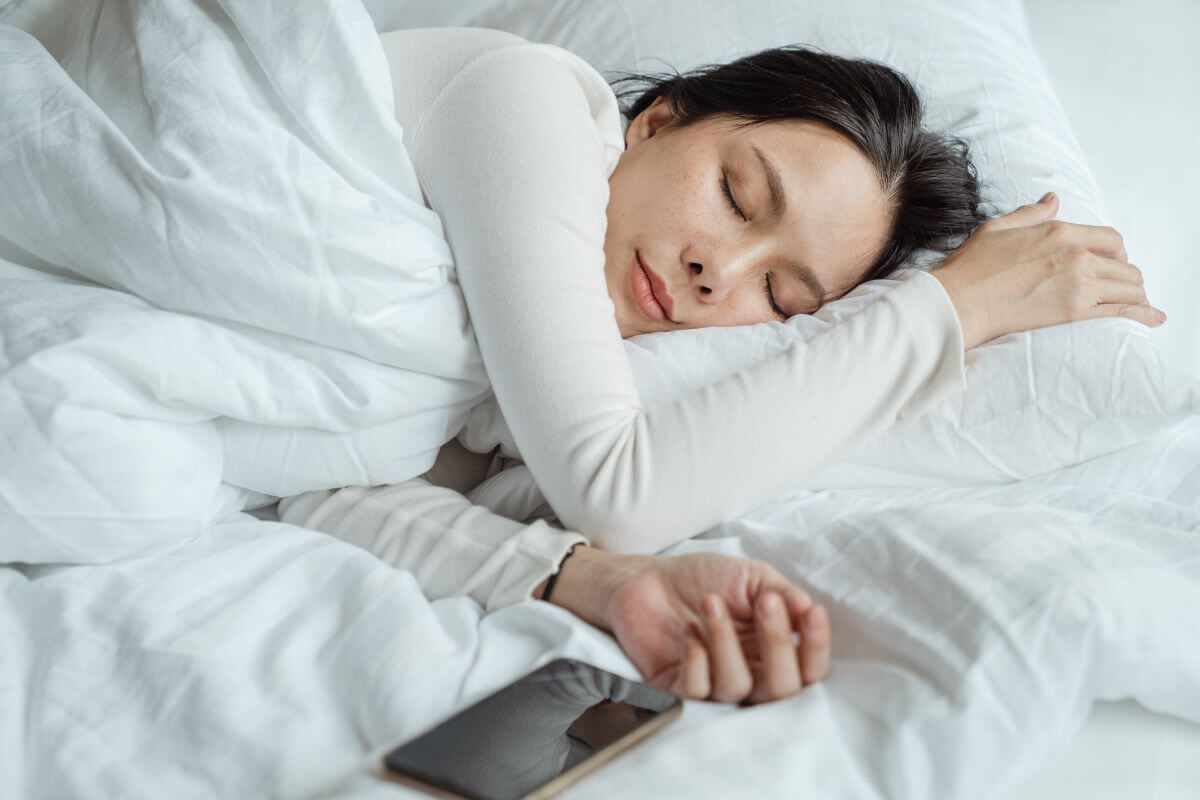
Tea: a natural remedy for insomnia
If you’re looking for a natural, healthy and simple way to relax a little before bed, teas are the most effective answer. A cup of tea before bed can make all the difference. But beware: it can’t be just any tea! Stay away from teas that have theine (caffeine) or stimulating effects. What you’re looking for are relaxing or sedative effects.
Sleeping teas – technically, infusions or tisanes – are usually blends of herbs and plants with calming and relaxing properties, which can act on the mind or body (or both) and help us fall asleep or have a more restful night.
Compared to conventional drugs, they tend to have fewer side effects, are easier to obtain, and are less likely to be addictive. In fact, most sleep medications are produced using key substances found in the plants of sleep teas.
From chamomile to more complex tisanes, lavender to passionflower, below is a selection of herbs that are generally present in any product designed to fight insomnia.
Top 3 herbs and plants used in sleep teas
These herbs and plants can be used individually – i.e. in a simple infusion —, combined with each other, or together with other plants. Invariably, you’ll find at least one of them in any tisane for better sleep.
Passionflower:
Also known as ‘passion flower’, this is the flower of the passion fruit plant, with lots of calming and sedative properties. Among them are flavonoids that interfere with the functioning of the central nervous system and help regulate sleep, improve mood and reduce anxiety. It is also used as a concentration aid.
Valerian:
Valerian has been used as a natural calming agent for centuries. Its sedative properties help calm the body and mind. Usually, its root is its most effective part for this purpose. Valerian works by prolonging sleep time and reducing the number of times you wake up during the night. Due to its strong odour, it is typically consumed in capsules, powders, or tea. Among the various species of Valerian, the one that is used for medicinal purposes is Valeriana officinalis.
Chamomile:
There are few things that a Chamomile tea won’t help solve or ease. Headaches? Chamomile tea. Lack of sleep? Chamomile tea. Nerves before an important event? Chamomile tea. Taken before bed, chamomile tea acts as a calming and relaxing agent, helping to reduce stress and anxiety. You can find it dried, in capsule form, or in extracts. Although there are a wide variety of chamomile species, only two are commonly used for food supplements: Matricaria chamomilla and Chamaemelum nobile.
It is very common to find Valerian and Passionflower combined, and almost every home and school has a few sachets of Chamomile somewhere. These herbs are not just popular for convenience. They are, in fact, some of the richest in calming and sleep-inducing properties. Most of them act directly on the central nervous system.
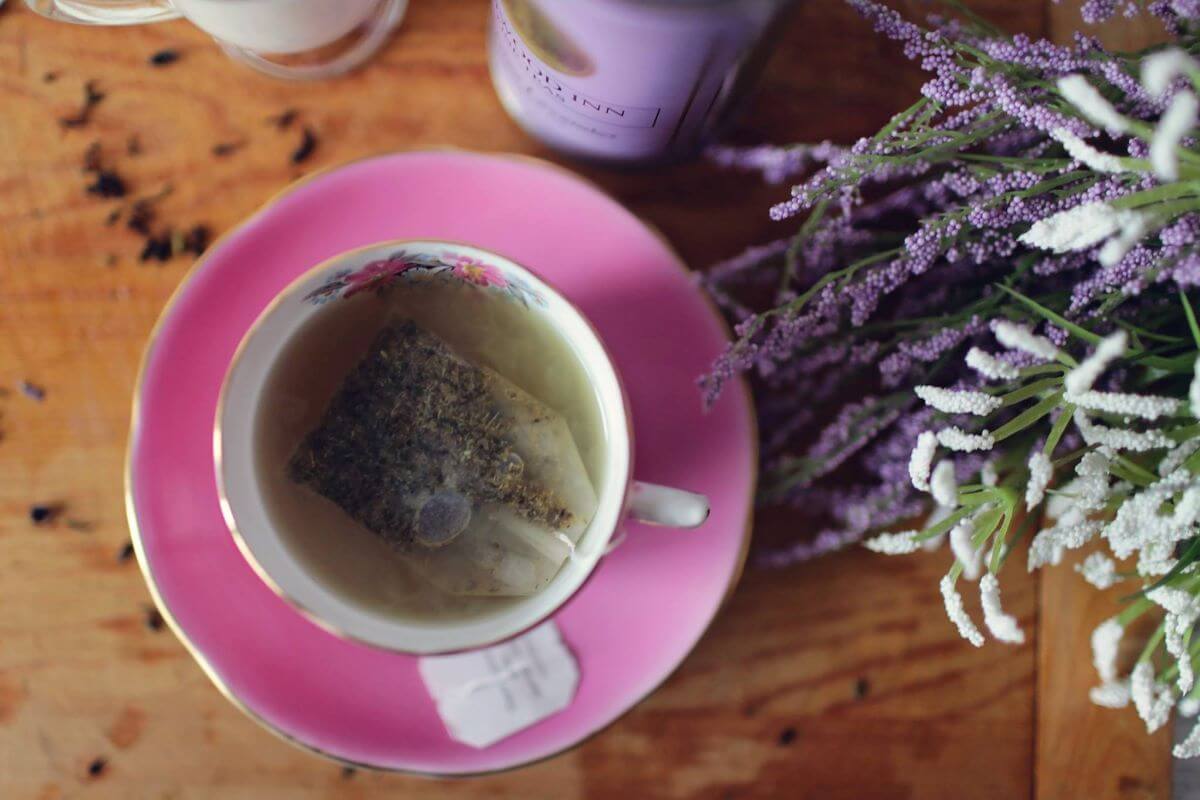
5 teas for better sleep: recipes and benefits
In addition to the single infusions mentioned above, we’ve added some common suggestions and others exclusive to our shop. The following herbal teas combine several of the herbs and plants mentioned in this article, and other natural ingredients with calming effects.
Lavender:
Lavender is a very multidisciplinary plant. Dried or fresh, it has an intense aroma that is famous for helping you relax. Its tea is rich in anti-inflammatory properties, strengthens the immune system, balances the nervous system and stimulates blood circulation. It also has a natural analgesic and detoxifying formula.
Recipe:
- Water temperature: 100º
- Infusion time: 5 to 10 minutes.
- Recommended amount: Approx. 1 tablespoon of Lavender Flowers per cup (240ml).
- Dosage: Drink 3 cups during the day and 1 cup before bedtime.
How to prepare Lavender Tea:
- Place 1 tablespoon of Lavender Flowers and 240ml of previously boiled water in a pot.
- Cover and leave to infuse for 5 to 10 minutes.
- Finally, strain and allow cooling slightly before drinking. For best results, practise a healthy lifestyle.
Lime trees:
There are about 46 species of Lime trees, which flower once a year. The flowers are harvested during the short flowering period, on the margin between spring and summer. Lime tea is considered a simple tea with calming, diuretic, sudorific and anxiolytic properties. It also acts as an expectorant and antispasmodic.
Recipe:
- Water temperature: 100º
- Infusion time: 5 to 9 minutes.
- Recommended amount: 1 teaspoon per person. Approximately 2 grams / cup. Do not exceed 4 gr/day.
How to prepare Lime Tea:
- Place 20 grams of linden in a litre (1L) of boiled water.
- Cover the container with the tea and let it stand for 5 to 9 minutes.
- After this rest, strain and consume immediately.
Medicinal Herbal Tea – Good Night’s Sleep:
This natural option designed by our company is inspired by a highly regarded Brazilian formula, widely prescribed by renowned nutritionists. It is known to help with weight loss, reduce anxiety and improve the symptoms of different depressive states. A formula based on medicinal herbs that may contribute to the balance of the nervous system.
Ingredients: Passionflower plant (Passiflora incarnata L.), St John’s wort plant (Hypericum perforatum L.), Chamomile flowers (Matricaria recutita L.), Lemon balm leaves (Melissa officinalis L.), Orange blossom (Citrus aurantium L.) and Lavender flower (Lavandula angustifolia L.).
Recipe:
- Water temperature: 100º
- Infusion time: 10 to 15 minutes.
- Recommended amount: 2 teaspoons per 1 litre.
How to prepare Good Night’s Sleep:
- Place in a container two tablespoons of the infusion in one litre (1L) of previously boiled water.
- Then, cover it and let it stand for about 10 to 15 minutes.
- Finally, strain and you can consume your tisane, hot or cold.
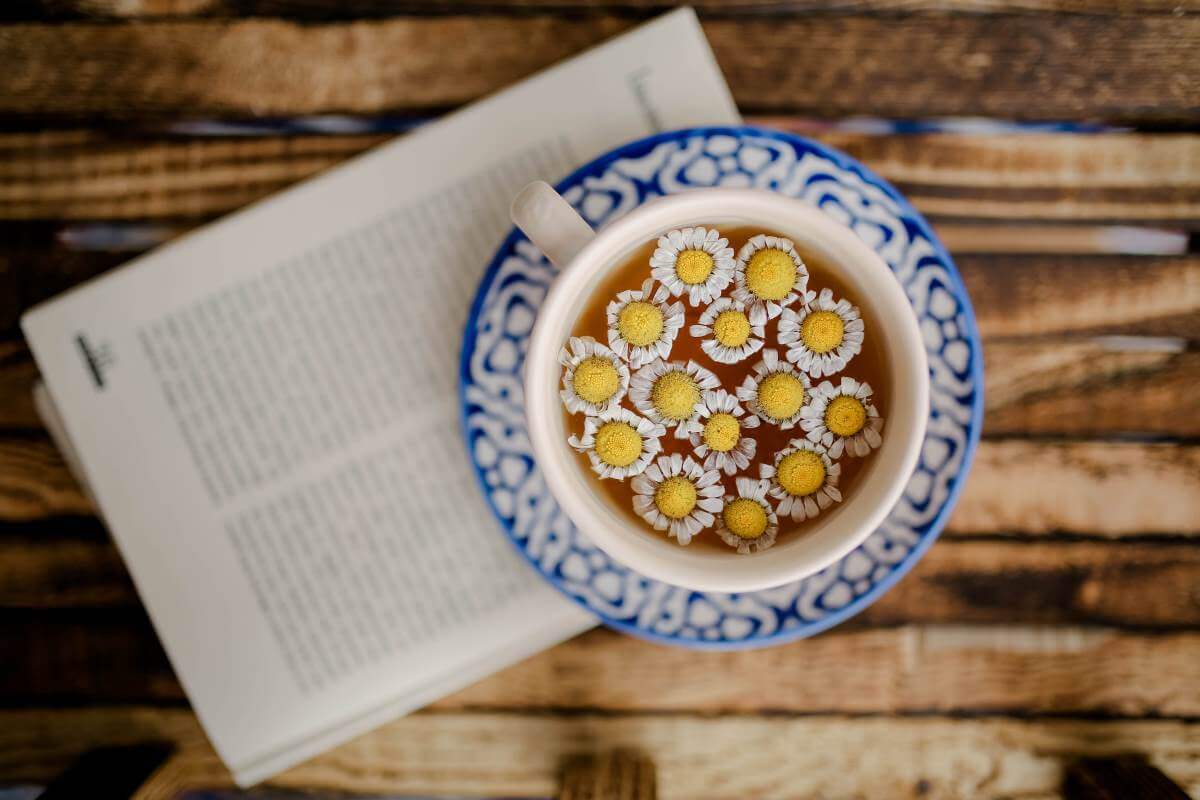
Relax Anti-Stress Herbal Tea:
Inspired by Ayurvedic Medicine and based on spices and medicinal plants. A powerful natural anti-stress formula designed to relieve and regulate the body. Therapeutic properties: combats stress and regulates sleep.
Ingredients: Cinnamon pieces, liquorice, pineapple, ginger, mulberry leaves, orange peels, hibiscus, fennel, chamomile, pink pepper, cloves, hop petals, cardamom, and St. John’s wort.
Recipe:
- Water temperature: 100º
- Infusion time: 5 to 7 minutes.
- Recommended amount: 2 teaspoons per person. Approximately, 4 gr./cup.
How to prepare the Relax Anti-Stress Herbal Tea:
- Place 2 teaspoons in 250 ml of previously boiled water in a container.
- Cover and leave to infuse for 5 to 7 minutes.
- Finally, strain and consume this tea hot or cold.
Calming and Soothing Tea:
A special blend of plants and flowers to savour and relax. It is an excellent calming and slightly sedative option that can help you relieve daily stress and combat fatigue. It also promotes sleep regulation.
Ingredients: Peppermint, lemon balm, strawberry (leaves), chamomile (flowers), gooseberry (leaves), mulberry (leaves), rose petals, heather (flowers), lavender (flowers) with natural mint flavourings.
Recipe:
- Water temperature: 100º
- Infusion time: 5 to 7 minutes.
- Recommended amount: 2 teaspoons per person. Approximately, 4 gr./cup.
How to prepare Calming and Soothing Tea:
- Place 2 teaspoons in 250 ml of previously boiled water in a container.
- Cover and leave to infuse for 5 to 7 minutes.
- Finally, strain and consume this tea hot or cold.
So, which of these teas will you try first? Remember to check the labelling and active ingredients of each tea before you drink it, and check what interaction it may have with any medication you are taking. Check with your doctor to confirm if you can consume any sleep aid.





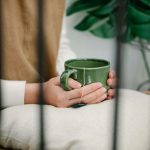
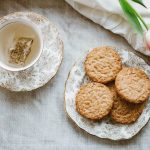
Sorry, the comment form is closed at this time.